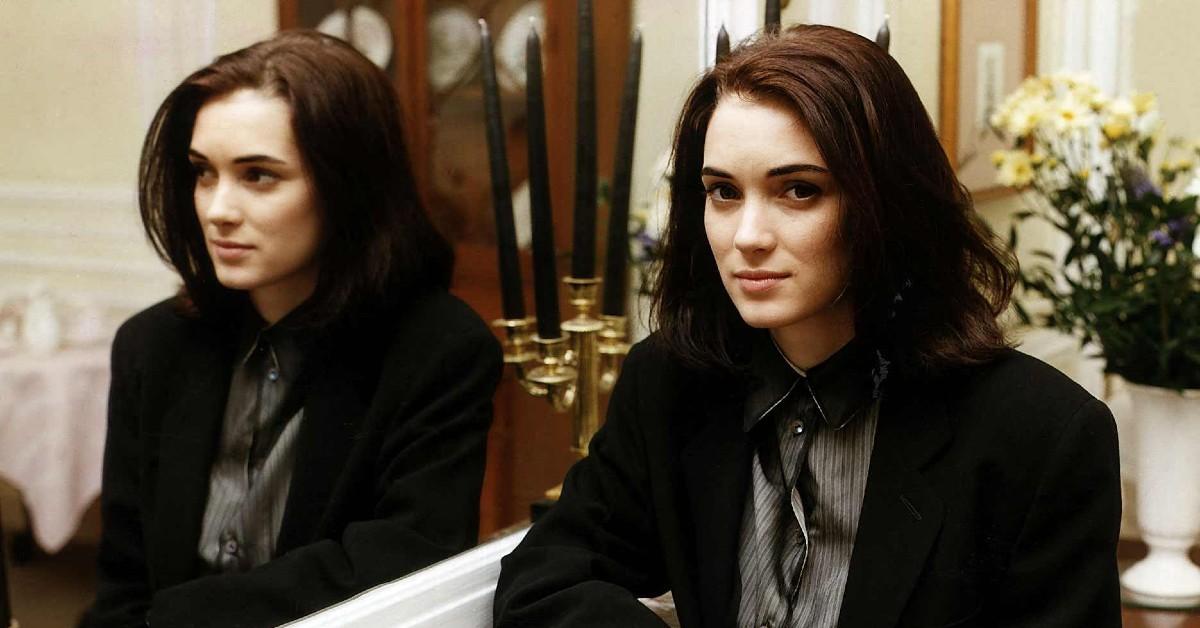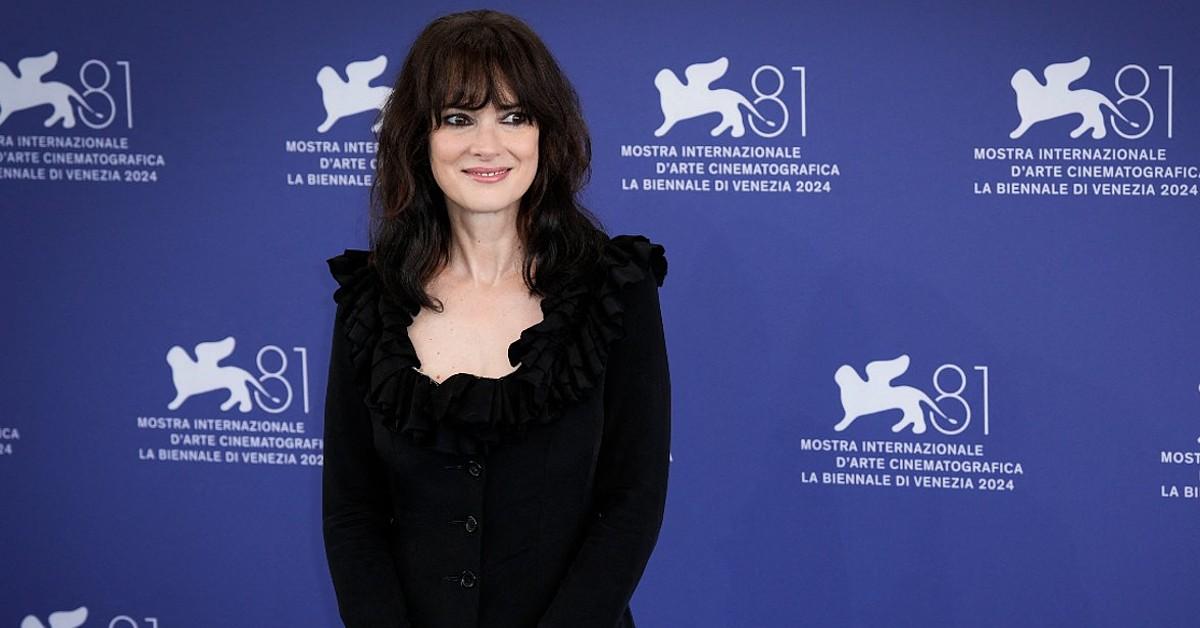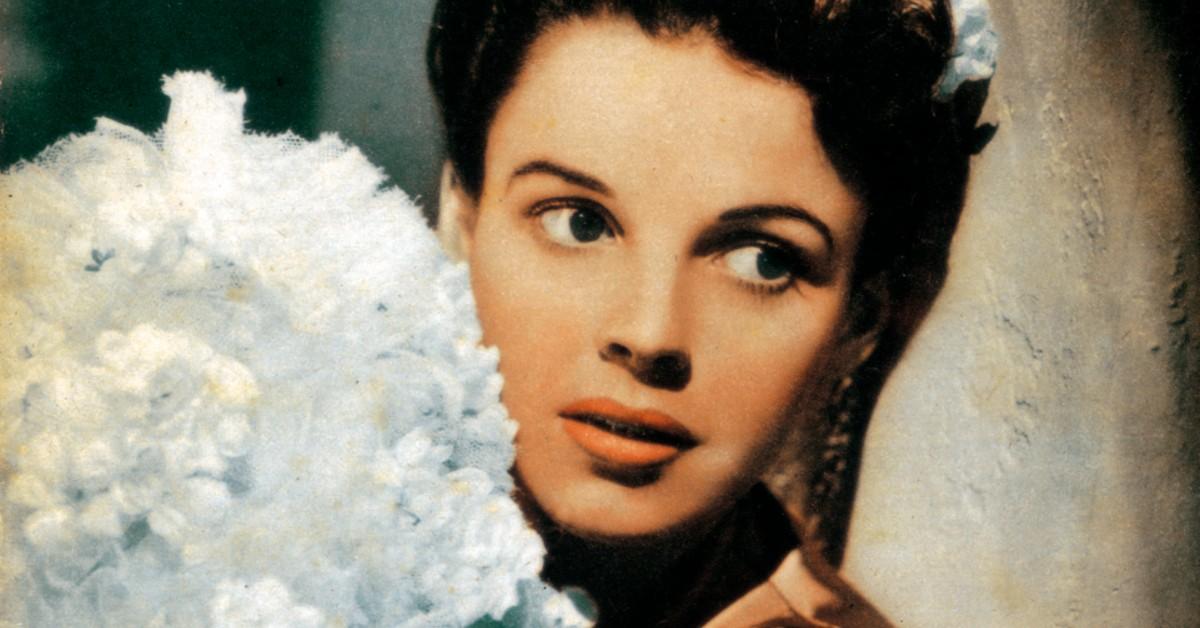Celebritiy, News
Winona Ryder Shares That Her Hippie Parents Feared She’d Suffer the Same Fate as Judy Garland, a Child Star Who Died of a Drug Overdose, If She Pursued a Hollywood Acting Career
Winona Ryder recently opened up about how her path to stardom almost took a different turn, as her parents were deeply concerned about her entering the Hollywood spotlight. Now 52, Ryder revealed that her unconventional upbringing on a 300-acre commune in Mendocino, California, played a significant role in shaping her values and career decisions. Despite this liberal and free-spirited environment, her parents harbored serious concerns about the dangers of the entertainment industry, fearing their daughter could follow in the tragic footsteps of Judy Garland.

Ryder’s childhood was far from ordinary. She grew up surrounded by influential figures from the counterculture movement. She was occasionally babysat by poet and social activist Lawrence Ferlinghetti, and her godfather was none other than Timothy Leary, the famed psychologist and advocate of psychedelic drugs. Leary would even take her to baseball games, creating a unique atmosphere for her early years that blended intellectualism, activism, and open-mindedness. But despite these progressive influences, Ryder’s parents drew a firm line when it came to the idea of her diving headfirst into Hollywood at a young age.

According to Sydtomarket.net, her parents’ hesitation stemmed from their deep-seated fear that the pressures of the film industry would lead their daughter down the same destructive path as Judy Garland, who endured a lifetime of substance abuse after being pushed to her limits by Hollywood studio executives. Garland, who became a global star at a young age, famously struggled with addiction after being prescribed amphetamines to stay alert during long filming schedules and barbiturates to help her sleep. These practices ultimately led to her untimely death from an accidental overdose at the age of 47, a fate Ryder’s parents were determined to help her avoid.

Ryder’s family, who were once active in San Francisco’s intellectual and free-thinking Haight-Ashbury community, relocated to the rural town of Petaluma when she was 10 years old. It was there that Ryder began to feel like an outsider, frequently turning to “film noir” as a form of escape. Despite her love for film and the arts, her parents remained wary of the pressures of Hollywood and initially resisted her pursuit of an acting career.

Eventually, however, they compromised by enrolling her in the prestigious American Conservatory Theater in San Francisco, hoping it would provide her with a more structured and supportive environment. While Ryder thrived there, her parents kept strict rules in place. “I had to keep up my grades. I couldn’t work if it conflicted with school,” she explained. “My parents—who are still my best friends—were very wary of Hollywood. They associated it with Judy Garland’s tragedy, and we never relocated there.”
Ryder’s parents were adamant about keeping her grounded, insisting that their daughter’s budding career should not interfere with her education or home life. Despite their concerns, her talent shone through, and she quickly gained attention for her performances. After adapting a monologue from J.D. Salinger’s *Franny and Zooey* for an audition, she was accepted into the conservatory and landed an agent at just 13 years old. Soon after, she was cast as Lydia in Tim Burton’s *Beetlejuice*, a role that would launch her into stardom as a teenager.
While Ryder’s parents eventually accepted her passion for acting, they never allowed her to fully immerse herself in the Hollywood scene. She reflected on this later in life, recognizing the wisdom behind their decision. “Not moving to Hollywood turned out to be such a gift,” Ryder said. “I knew a lot of kids who did that, who moved to L.A. to support their whole families, and it didn’t always turn out great. I saw a lot of them get burned out.”
Thanks to her parents’ guidance and cautious approach, Ryder avoided many of the pitfalls that plagued other young actors who entered the industry at a tender age. Her career blossomed under their watchful eye, allowing her to maintain a sense of normalcy and independence that many child stars struggle to achieve. She has since enjoyed a long and successful career in Hollywood, continuing to make a name for herself in both film and television.
The caution her parents showed was not without cause. Judy Garland’s struggles with addiction became synonymous with the darker side of Hollywood’s golden era. In the late 1930s and early 1940s, MGM studio executives reportedly kept young stars like Garland and Mickey Rooney working around the clock, prescribing them amphetamines to keep them awake during long shooting days and barbiturates to help them sleep at night. The cycle of “uppers” and “downers” began to take its toll on Garland, leading to a lifetime of dependency that she later blamed on the pressures imposed on her as a young actress. Garland’s tragic death from an overdose shocked the world, but Ryder’s parents saw it as a cautionary tale, one they did not want their daughter to repeat.
While Rooney later denied that MGM pushed drugs on its young stars, Garland’s account and her well-documented struggles have become a key example of the dangerous pressures that come with early fame in Hollywood. By keeping Ryder out of that environment, her parents may have helped her avoid a similarly dark fate.
In addition to concerns about the entertainment industry, Ryder’s parents instilled in her a sense of curiosity and a love for learning, traits that would stay with her throughout her career. As a result, she grew up with a unique perspective, combining her artistic passion with a more grounded and intellectual approach to life. This balance allowed her to carve out a niche for herself as one of Hollywood’s most enduring stars, known for her eclectic roles and strong sense of individuality.
Ryder continues to credit her parents with helping her navigate the often-treacherous waters of Hollywood. Their guidance not only kept her grounded but also allowed her to maintain a long-lasting career, something many child stars fail to achieve. Now, as she looks back on her early days in the industry, Ryder recognizes that their concerns were not unfounded—and that avoiding the lure of Hollywood’s dark side may have been one of the greatest gifts they ever gave her.
